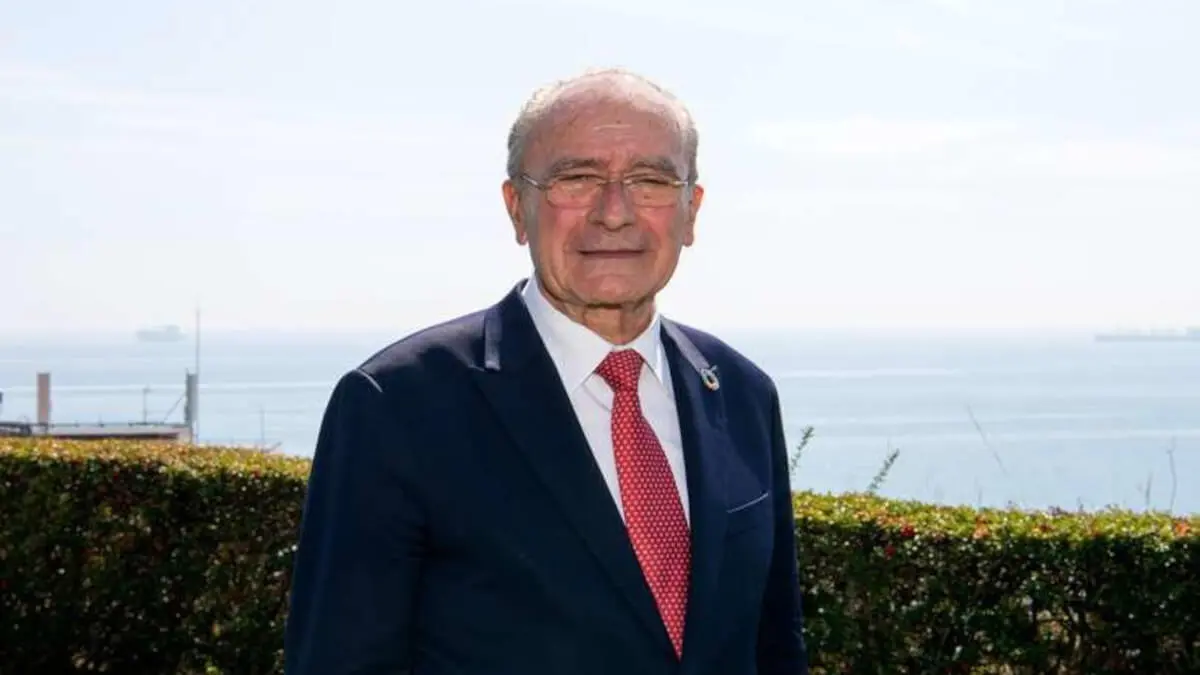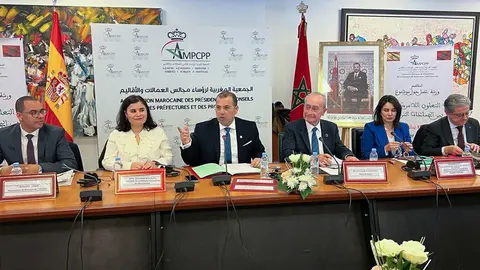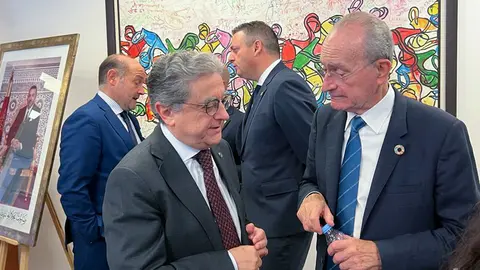It is in Europe's interest to help Morocco's stability

In order to strengthen relations between Morocco and Spain, the Moroccan Association of Presidents of Prefectural and Provincial Councils (APCPP) organised a workshop on Decentralised Cooperation of Territorial Collectivities at the National Library of Morocco.
The event in Rabat was an opportunity for governmental and territorial authorities from both nations to share experiences on decentralised cooperation.
Atalayar was able to speak in Rabat with Francisco de la Torre, Mayor of Malaga, who highlighted the benefits of the partnership between Moroccan and Spanish municipalities for the two shores of the Mediterranean.
Mr Francisco de la Torre, you took part in this seminar on the decentralisation of cooperation between Spain and Morocco. Can you give us an assessment? What is your impression of what was discussed at the National Library in Rabat?
I think it was right to emphasise the importance of decentralised cooperation. This does not mean that there is no centralised cooperation from country to country, from Europe to country, but decentralised cooperation means that the municipalities cooperate with each other and the local level is a very interesting, very practical level.
Knowing the problems well and also knowing how solutions can be shared is important. This capacity of the municipalities needs to be reinforced with European funds, as it happened with the Interreg programme, in which we participate and which we know very well.
One of the conclusions for me is precisely to work in this direction, to make decentralised cooperation viable with European funds. And then to get to know the reality of each country and each municipality better and to have the responsibility as an ethical sense that from the more developed areas in the north of the Mediterranean we have to help the south, Morocco.
Morocco also has a very important role as a leading country in Africa that can help the development of other neighbouring countries. All of this is of great interest to us in Spain and in Europe in order to stabilise Africa, so that the African population can find possibilities for development, to be happy, to have the chance to live in their own cultural environment and to find development. But this requires aid from the developed areas to the less developed ones, and the Spain-Morocco border is the border where there is still the greatest difference in per capita income.
Can we say, Mayor, that the stability and development of Morocco, North Africa and Africa is the stability of Europe and Spain?
I think so. It is in Europe's interest, and it should also feel a sense of responsibility, to help Morocco's stability. Political, economic and social stability. And obviously they are two very close spaces, with a shared history, with a great capacity to understand each other and with a way of working together for greater efficiency.
Cooperating in agriculture, in tourism, in industry... There are many aspects where we can work together and provide good services to the citizens of each municipality. And how can we help? There are infinite ways to do this, I have mentioned the possibility of our staff providing technical assistance paid for by us. It has to be people with a vocation, who know the language and who can do it. We have a case of success in Malaga in this sense, which has helped to computerise many municipalities in Morocco, as well as in other French-speaking countries in the Mediterranean area.

In today's turbulent world, communication and information are essential. Good communication is essential to know exactly what Morocco is like, what Morocco is, and perhaps that it is an ally and a strategic and natural partner of Spain, beyond stereotypes.
Clearly, I believe that this association created approximately four years ago, according to the president of the association, can play a very interesting role. It would have been good to have had this action in place for some time as a mechanism for dialogue and for creating this communication and this knowledge of what is happening and of how we can establish cooperation links, I insist, between Andalusian municipalities, Moroccan municipalities, but also Canary Islands municipalities and Moroccan municipalities.
What role can Malaga play, bearing in mind that this is perhaps a state policy that goes beyond the colour of the central or regional government?
The municipal government of Malaga, throughout the years that I have been Mayor, has always understood that cooperation is more of an ethical obligation, but we have maintained a commitment of 0.7% of our own municipal income. Then we have cooperated with these European programmes with a significant amount of money as well.
Malaga is very well placed geographically. It has air communications, maritime communications with Morocco. There is a young Moroccan population studying in the city of Malaga. There are common elements in the tourist and cultural vocation of Malaga, as well as in agriculture, and of other areas of Andalusia on the Mediterranean coast that can be replicated in Morocco.
All that experience is there. The same goes for housing. We can share experiences and from Malaga we can be useful in terms of solving some of the problems of Moroccan municipalities.











